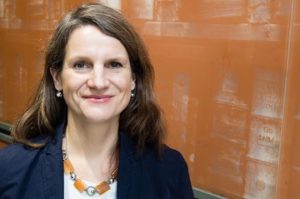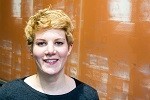
Humboldt-Universitaet was founded in 1810 according to the concept of combining research and teaching which Wilhelm von Humboldt had put forward, and was hence called the “mother of all modern universities”. 29 Nobel Prize Winners who worked at Humboldt-Universitaet have contributed to the international acclaim.
With more than 430 professors and 38.000 students it covers all the major academic disciplines in the Arts and Humanities, in Social Science, Cultural Science, Human Medicine, Agricultural Science, Mathematics, Economics and Law and the Natural Sciences. In an international comparison, Humboldt-Universitaet ranks among the top ten of German universities.
Humboldt-Universitaet invests all its energy in being a place of excellent research and teaching. The University’s success in continuing or resuming traditional partnerships and the interest shown by renowned universities from all over the world show that Humboldt-Universitaet plays an important and accepted role in the global scientific dialogue. Numerous projects have been implemented with the support of the European Union. In the 7th Framework Program Humboldt-Universitaet is participating in more than 60 Cooperation and Marie Curie projects and furthermore 9 ERC Grants with a total budget of more than 27 Million Euro.
For more information, please visit https://www.hu-berlin.de/en/
TEAM:
This project are carried out at the Humboldt-Universitaet by the Office for International MA Programmees of the Department of Social Sciences. This Office, chaired by Dr. Claudia Matthes offers several joint and double degree programmes, across Europe, the United States and Turkey. The German Turkish Master, a collaboration with Middle East Technical University in Ankara, exists since 2007 and opened a track for students with a refugee status in 2016. Hence, there is a lot of expertise regarding the organisational and academic integration of students with at times unclear legal status and specific needs into Berlin’s university system.

Dr. Matthes has been working on the issues of democraticsation, political institutions and regional cooperation in Europe. She has also taught many courses on EU policy-making in specific. Non-European insights on these topics presented by students from other regions of the world were always very valuable and enriched the learning environment. Generally, she aims to present and reflect upon these themes by including historical depth, contextual comparisons and methodological (particularly qualitative or mixed methods) analysis of current controversies in the European context. In addition, Dr. Matthes has supervised numerous theses on citizenship, migration, social movements, international relations, and EU-politics. Her current research focuses on the debates about the decline of rule of law within the European Union and its member states, by especially looking at Poland. She is conributing to comparative assessments of democratic development, such as the Bertelsmann Transformation Index, and has extensive experience in teaching also at Turkish, American and other European universities.
 Ms. Kristin Küter is a research assistant at the Office of International MA Programmes and finalising her MA thesis in social sciences on migration narratives and their subjective perception by Syrians in Germany. She is focusing her research on migration discourses, racism, social acceptance and solidarity in migration societies. Her previous experience as a research assistant in another European research project was based on a comparative analysis of health policies and their social impact throughout Europe. There she was repsonsible for the project coordination, correspondence, data organization and processing amongst others. Further, she gained personal experience as an international student during her first BA degree and thus also has a lot of practical experience for consulting incoming students with a refugee or any other background.
Ms. Kristin Küter is a research assistant at the Office of International MA Programmes and finalising her MA thesis in social sciences on migration narratives and their subjective perception by Syrians in Germany. She is focusing her research on migration discourses, racism, social acceptance and solidarity in migration societies. Her previous experience as a research assistant in another European research project was based on a comparative analysis of health policies and their social impact throughout Europe. There she was repsonsible for the project coordination, correspondence, data organization and processing amongst others. Further, she gained personal experience as an international student during her first BA degree and thus also has a lot of practical experience for consulting incoming students with a refugee or any other background.
HU was responsible for leading the Development of Online Course Curriculum and Train-the-trainer Camp Tool Kit for Peace Envoys. It was also lead the overall Quality Management of this project. Together with other organizations at the HU campus, for example RefRat (the students’ representative, engaged also in anti-racism work); Bologna Lab and International Office as well as the Refugees Welcome Program, Dr. Matthes and Ms. Küter projected and supervised the preparation of the online curriculum and the tool-kit for trainees, plus the communication between different departments within our university. As expert in international education and curriculum development Dr. Matthes contributed her broad experience with the needs of highly diverse student groups, the management of different university systems and curriculum development.
